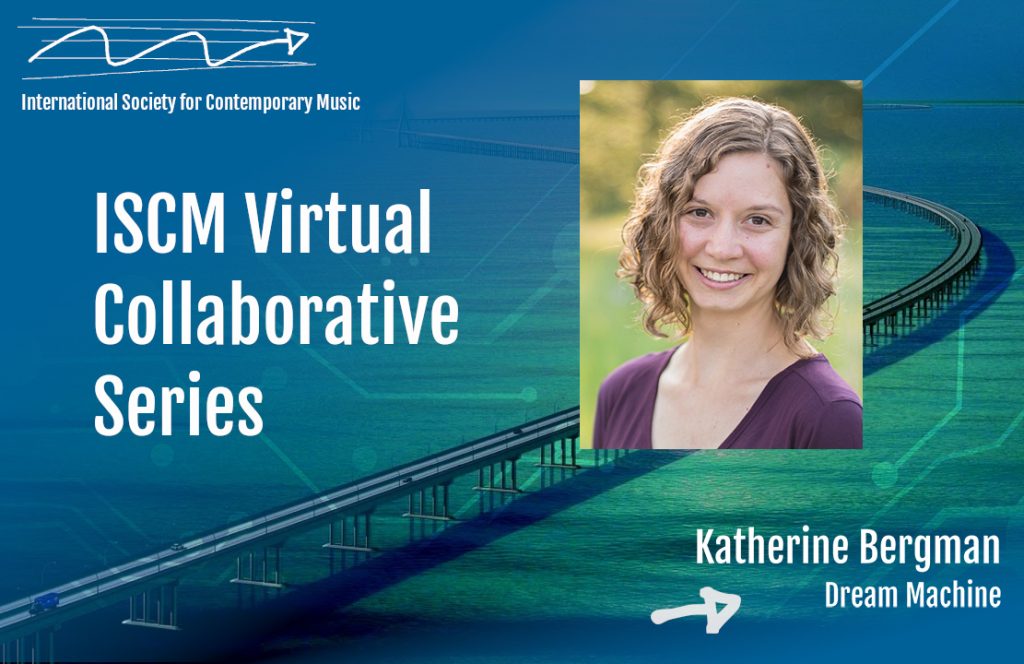Katherine Bergman: Dream Machine

Katherine Bergman (b. 1985) is a Minnesota-based composer who draws on literature, environmentalism, and found materials to create music that has been described as hypnotic and visceral. She has received commissions and performances from leading ensembles and festivals throughout the United States, including Zeitgeist, Encore Wind Ensemble, the Gustavus Wind Orchestra, Zeitgeist, Seen/Heard Trio, the Minnesota Percussion Trio, The Dream Songs Project, and many others. Her works have been presented at the North American Saxophone Alliance Biennial Conference, the College Band Directors National Association Conference, and the Upper Midwest Chamber Winds Symposium, and her compositions have received support from the Minnesota State Arts Board, the Jerome Foundation, and the Metro Regional Arts Council. Katherine holds a master’s degree from the University of Northern Iowa School of Music, where she studied composition with Jonathan Schwabe and Alan Schmitz. She earned a bachelor’s degree in music from Gustavus Adolphus College in Saint Peter, Minnesota with composition instructors including Michele Gillman and Steve Wright. She has studied extensively with Mary Ellen Childs, and has received individual instruction from Samuel Adler. Recent and upcoming projects include new works for HubNew Music, Nautilus Music-Theater, and a new work for wind ensemble commissioned by a consortium of university and high school bands. Katherine is Co-Founder and Artistic Director of Spitting Image, a composer collective that brings together composers, listeners, and performers to strengthen the Twin Cities contemporary music community.
According to Bergman, the meaning behind the title of her 2016 wind band piece Dream Machine is two-fold. In one sense, the title suggests the brain is a “dream machine”, generating odd, otherworldly landscapes when neural activity reaches a certain state. Simultaneously, it refers to a physical art piece designed by artist Brion Gysin called the “Dreamachine”. The Dreamachine is a phonograph-driven stroboscope described as “the first art object to be seen with the eyes closed” and is intended to affect the viewer’s brain alpha wave activity. Whether the “machine” is the sculpture, the brain, the music itself, or all of the above is open to interpretation. Dream Machine was one of the official submissions from New Music USA to the ISCM World Music Days in Estonia in 2019 where it was performed by the Estonian Police & Border Guard Wind Orchestra conducted by Hando Põldmäe at the Estonian National Museum in Tartu. The recording here features a performance by the Encore Wind Ensemble, directed by Jerry Luckhardt.
